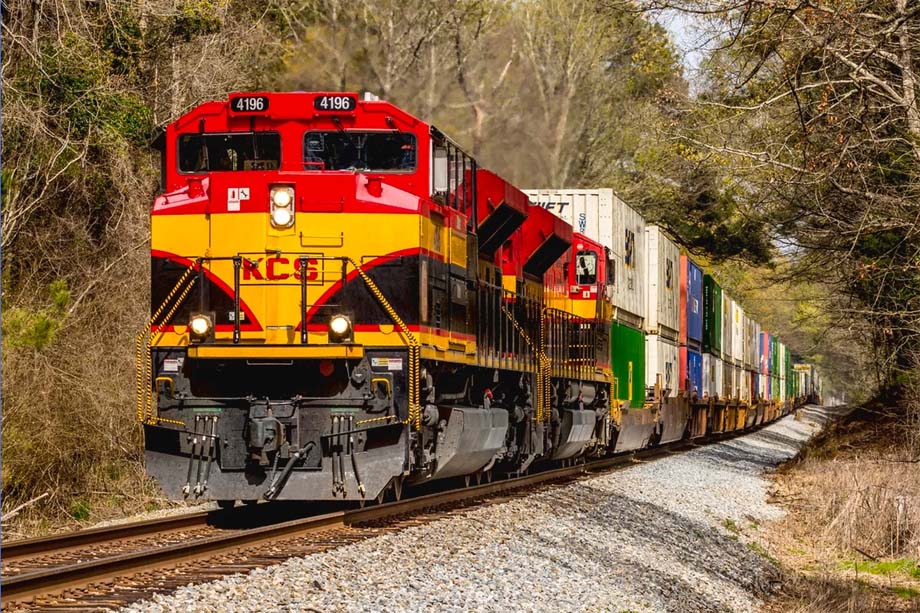
Washington District of Columbia - Canadian Pacific Railway executives sat before U.S. regulators in
Washington on Wednesday and laid out their plans to take over Kansas City Southern, declaring the US$27 billion deal
would boost competition, create jobs, and improve service for consumers and shippers.
The U.S. Surface Transportation Board (STB) is holding a three day hearing on the merger that would create the first
railway that links Mexico, the United States, and Canada.
The deal, proposed in March 2021 and approved by KCS a year ago, would create a company called CPKC that would employ
about 20,000 people and operate a 32,000 kilometre network that reaches ports in Mexico City, Vancouver, and Saint
John.
The deal has been approved by the Mexican regulator, but requires STB approval to go ahead.
A decision by the STB is expected by the first quarter of 2023, CP has said.
No Canadian approvals are needed.
Led by CP chief executive officer Keith Creel, CP and KCS executives on Wednesday told the regulators the takeover
would give rail customers more choices to move their goods, take trucks off the road, and reduce emissions, as well as
open new markets for U.S. companies.
Direct service between Mexico's automaking or agriculture regions and U.S. customers would reduce costly cargo handoffs
and delays, the board heard.
"The CPKC benefits are extraordinary. It's a once-in-a-lifetime combination to inject new competition into the
U.S. rail industry where every existing rail customer has more options," said Mr. Creel, who is slated to lead the
merged railway.
For Calgary based CP, the deal presents a rare chance to tap ports and markets in the U.S. south and Mexico, allowing
it to increase its work force and expand its network while remaining the smallest of the big railways in the United
States.
Canadian National Railway Co. outbid CP for KCS, but abandoned the fight after an unfavourable preliminary regulatory
ruling.
CN and other rivals Union Pacific and BNSF, as well as Metra, the Chicago area commuter rail company, oppose the deal
for reasons that include increased congestion and loss of access to Mexico.
CN, whose executives are scheduled to testify on Thursday, has told the STB any approval should be conditional on KCS
selling the railway between Kansas City and Springfield and East St. Louis to CN as a way to maintain competition in
the region.
Raja Krishnamoorthi, a Congressman who represents the suburbs near Chicago, told the panel the merger would quadruple
the number of freight trains in his district.
This would cause more delays for Metra commuter trains and their passengers, do "undue harm" to the
community, and undermine government efforts to get commuters out of their cars and onto rails, Mr. Krishnamoorthi
said.
"The merger as proposed is not consistent with the public interest," he said.
Carl Bentzel, commissioner of the Federal Maritime Commission, the marine regulator, urged the STB to block the
merger.
He said it would increase container shipping at Canadian ports to the detriment of the U.S. industry.
This would reduce employment and investment at the 15 U.S. ports, he said, noting the shipping gateways in Vancouver,
Prince Rupert, Montreal, and Saint John are government agencies that receive billions in taxpayer aid.
At the same time, many of the containers the ports handle are destined for the United States, a trend that would
accelerate under CP's planned merger, he said.
Martin Oberman, chairman of the STB, responded to Mr. Bentzel by saying "short-term thinking" among U.S.
railways and governments has led to underinvestment and disruptions at U.S. ports.
Shippers in the United States "wouldn't be going to Canadian ports if they could get the service they need from
our ports and railways," Mr. Oberman said.
Author unknown.
(likely no image with original article)
(usually because it's been seen before)
provisions in Section 29 of the
Canadian Copyright Modernization Act.

